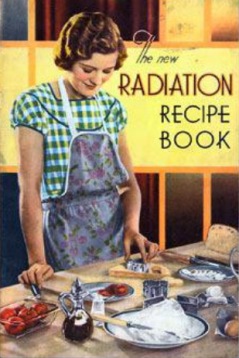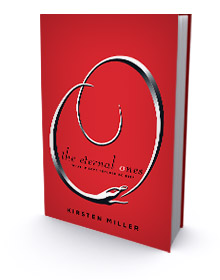And the Next Volunteer Will Be . . .
November 28, 2010
Happy Thanksgiving!
November 24, 2010
You Were: The Witch
November 24, 2010
I’m not certain which years I’ve seen, but they were dark. The events I’ve witnessed could have taken place in any country in Europe. A deadly disease was sweeping across the land. People lay dying in the gutters. Those who were still alive were busy looking for scapegoats—sinners to blame for the terrible fate that had befallen them. The first person most towns killed, tortured, or threw in jail was the local “witch.”
The lord of your lands had been looking forward to getting rid of you for quite some time. You were a healer, and your hands could repair most injuries. More often than not, that meant healing wounds inflicted by the lord himself. Wounds, it probably goes without saying, that he didn’t want to heal. That was enough to earn you the title of witch.
However, there was also the rather touchy subject of the lord’s son. (And I do mean touchy.) You two had been madly in love since childhood. Your beau managed to keep you alive and fed, but he was forbidden to marry you. His father, the lord, did not want his family’s legacy fouled by peasant blood. So when the town called for a scapegoat, you were the first person he imprisoned.
You watched from a cell in a dismal, damp tower as the peasants died of disease. You’d seen enough to know what it was—and how to heal it. But there was no way to spread the word. It seemed hopeless—until the lord’s son fell ill.
The lord had assumed that the dreadful disease only struck peasants. When he saw his son lying in a pool of sweat and blood, he finally started to panic. Not for his son’s sake. For his own. You were called to the castle and forced to listen as the lord begged you to save his life. You agreed on three conditions.
A year later, the town had a brand new clinic. The land had a new lord. And that lord had a wife beloved by her people. (Only a few jealous biddies still called her a witch.)
And the Next Volunteer Will Be . . .
November 21, 2010
You Were: The Very Good Girl
November 19, 2010
You were born in 1718 to a wealthy merchant who lived near Milan. As a child, you were pretty, delicate, well-mannered, and docile. Your parents adored you. Your servants adored you. Heck, everyone in town adored you. Strangers who saw you riding around in your father’s carriage would gasp at the sight of your big, blue eyes and strawberry-blond ringlets. You’d acknowledge their stares with a sweet little wave, and their hearts would melt into big globs of goo.
When you disappeared, there wasn’t a dry eye in town.
Fortunately, your kidnappers were as foolish as they were evil. They figured a pretty little girl like you would be worth a handsome ransom. And it would be much easier than kidnapping an adult. They assumed you were too small and sweet to fight back. They were very wrong.
I’m not suggesting that the sweetness was all just an act. You were a genuinely wonderful human being. But that didn’t make you a doormat. Until that time, you’d lived a sheltered life. You’d never had to fight any battles, and you’d been looking forward to your first for an awfully long time.
As your kidnappers raced away from the scene of your abduction, you calmly assessed the situation. There were two kidnappers, both hulking males. There was no chance of overpowering them, so you’d have to outwit them.
They hid you in a hovel in the middle of the woods. Just as they had expected, you sat on a chair and bawled for your mamma. They didn’t need to watch you that closely. Which was a good thing, since the kidnappers were busy battling a demon that had followed them home. First, the thatched roof caught on fire. Then their wine was replaced with turpentine. One’s dagger disappeared from the sheath on his belt. The other man sat on the dagger and received a rather embarrassing wound. While they scrambled to clean up the blood and dress the wound, the horses were set loose and the cat went crazy.
Finally, the men came to the conclusion that the demon had something to do with you. They were too frightened to kill you, so they set you loose in the woods and hoped hunger or wild animals would do the job for them. But you’d paid close attention on your ride to the hovel. It took you two days to retrace the route, but on the third morning you arrived at your parents’ door with the world’s sweetest smile on your face.
And the Next Volunteer Will Be . . .
November 18, 2010
You Were: The Eminence Grise
November 15, 2010
In 1922, you graduated from high school and took a job with the local paper in Sudbury, Ontario. Your hero was American journalist Nellie Bly, and you wanted to follow in her footsteps as an investigative reporter. On your first day in the office, you were informed that you’d be the paper’s new advice columnist.
You weren’t pleased, but you decided to take the job seriously. Some advice columnists try to be funny or folksy. And most never say what they really think. But whenever people wrote to you for love advice or professional guidance, you gave it to them straight. You never hesitated to tell them to quit their jobs, leave their spouses, empty their savings accounts, or flee the country.
At first people found your style a little too . . . honest. Then they started taking your advice. Soon, Sudbury was the happiest, most productive town in Canada. That’s when the government of the United States took notice. (Yes, Canadians. We’ve always been watching you.)
Warren G. Harding was a terrible President—quite possibly one of the worst. But at least he knew it (which is more than you can say for some that we’ve had). Before he went into politics, he’d been a successful newspaperman, and even as President he kept his eyes on the papers. That’s how he found you. A week later, on the last day of July in 1923, you were sitting across from him in the Oval Office.
Harding told you all about the scandals and corruption that plagued his presidency. And one by one, you offered solutions to his problems (not all of them professional—Harding was known as a ladies’ man). If he’d followed your advice, Harding might have gone down in history as a much better leader. Unfortunately, he kicked the bucket three days later.
Of course that wasn’t the end of your career in politics. You were an advisor to every President from Harding to Kennedy. (Though some leaders paid more attention than others.) FDR was referring to you when he said, “I’m not the smartest fellow in the world, but I can sure pick smart colleagues.”
Though you married a movie star (long story), you lived your own life in the shadows, and your contribution to the world has gone unrecognized. But if you look closely at photos taken of US Presidents at historical moments, you’ll find the same attractive blond lurking somewhere in the background.
And the Next Volunteer Will Be . . .
November 14, 2010
You Were: Blackbeard’s Daughter
November 12, 2010
Oak Island is a tiny chunk of land that lies just off the coast of Canada. Yet despite its size, Oak Island has been one of the world’s most famous isles for over two hundred years. That’s because it’s home to what’s known as the Money Pit.
At the end of the eighteenth century, a sixteen-year-old boy discovered a strange, circular cavity on one tip of the island. Thinking he’d found the site of a buried pirate treasure, he recruited some friends to help him dig. The boy and his friends kept digging and digging, until their hole was thirty feet deep. The things they discovered inside the pit made them certain they were on the verge of finding a fortune. One was a stone with engraved symbols that are believed to have read “forty feet below, two million pounds lie buried.” (So much for subtlety.)
But there was nothing forty feet below—except for more tantalizing clues and quite a few deadly booby-traps. Over the past two hundred years, fortunes and lives have been lost in the Money Pit. And to this day, none of the treasure hunters has found a dime. (Read more here.)
That’s because you took everything the hole had to offer in 1719, just months after your father, the famed pirate Blackbeard, finally met his maker.
You were just a little girl when you overheard your father making the plans to bury—and booby-trap—his treasure. If he’d known you’d been listening, you might have shared the same watery fate as the men who helped him see his plan to fruition. So you didn’t say a word. Instead, you spent a decade learning everything you’d need to know to steal a fortune from the father you loathed.
Then, when you were seventeen years old, you got word that Blackbeard was dead. On that very day, you cut off your long, golden locks and dressed up as a young man. The next morning you were aboard a whaling ship that was bound for the waters off North America.
As soon as the ship neared Nova Scotia, you stole a lifeboat and rowed ashore. It didn’t take you long to reach Oak Island, and you had no trouble finding the site of the buried treasure. You knew all about the booby-traps hidden inside the hole, and you decided not to dig straight down. Instead, you dug a diagonal tunnel and took the treasure without any trouble.
A few months later (you needed the time to let your hair grow out a bit), you arrived in Boston, dressed in the latest, most extravagant fashions. You introduced yourself around town as a young, widowed countess. No one wanted to question a girl with so much money to spend, so your story was accepted by all. You married well, lived lavishly, and produced six children. When you were an elderly woman, you heard of the “discovery” on Oak Island. You laughed so hard that you died on the spot.
My Interview with Ally Condie!
November 12, 2010

1. I’ve heard people argue that “dystopian fiction” is just a new, girl-friendly label for books that might have been called “science-fiction” in the past. Do you think this is true? Did you read much science-fiction in your youth?
I hadn’t heard that argument! That is an interesting point. I think it may have some merit—but do girls shy away from science fiction as a rule? I really liked sci-fi growing up, particularly Ray Bradbury. (This is probably obvious because there is a scene in Matched that is a tribute to Fahrenheit 451.) His Dandelion Wine is one of my favorite novels of all time.
2. If one were to browse the YA shelves at the local bookstore, one might reach the conclusion that the future of mankind is going to be pretty darn bleak. Are you more optimistic or pessimistic about the days to come?
I’m optimistic. And here is why. I believe in kids. My kids, the kids I used to teach, the kids across the street. I think they are going to change the world in very good ways. I do worry about what we’ve done to the world and don’t think we have a free pass to just hand them our problems—but I believe that the teenagers and kids around today are capable of very, very wonderful things.
3. The love triangle at the center of Matched is both touching and believable. (And few are.) Here’s my question . . . What is it about dangerous boys (rebels, outcasts, “aberrations”) that makes them so incredibly attractive?
This is a great question. I actually don’t think of either of my boys as dangerous. They both play things fairly safe—unless Cassia is involved. I think of Cassia as dangerous, in a very quiet way. She takes risks herself and inspires others to do so too. But, to answer your question (sorry about that tangent!)—I think that boys who have an element of the unknown and the mysterious about them are attractive because of the sense of discovery one has when getting to know them.
4. The scenes with Grandfather made me cry like a baby. And I am NOT the kind of girl who gets teary-eyed over nothing. Were these scenes easy or painful to write?
Both. (And I’m sorry for making you cry.) They were easy to write because the feelings were real. They were painful to write because the feelings were real. I was and am lucky enough to have known my grandparents very well and they, particularly my paternal grandmother, have had a great impact on my life. I love them all very much. And I do not like to say goodbye.
5. Matched is set in a world in which young people’s “mates” are chosen by science. I imagine most people believe that such decisions should be left to the heart. Do you think our hearts are good at “matching” us for life?
If you think about it, we live in this very rare era in which love is seen as the key reason to marry. For most of history, that hasn’t been the case. It’s been about security, family, etc. Love in marriage is kind of a “newer” innovation. Personally, I think our hearts are good at matching us—and so are our minds. If we feel head over heels for someone but something in the back of our mind warns us about something or worries about something, we should give that equal attention. The best marriages always have both involved (mind and heart). I’m very much in love with my husband, but I also know that if we’re going to stay together for life—and beyond—it is going to take work to get there.
6. Matched sends the message that it’s sometimes necessary to break the rules. Have you ever broken the rules? (For the good of mankind, of course.)
Yes, I’ve broken the rules. But not usually in an overt kind of way. I think I feel like I break the rules sometimes not by doing things I “shouldn’t” do, but by feeling ways I “shouldn’t” feel. I think we all feel this way at different times, especially when we are trying to grow and it feels like there are rules holding us back.
7. I thought the language in Matched was incredibly beautiful. You seemed to choose your words with the care and precision of a poet. As it happens, a poem by Dylan Thomas plays an important role in the book. Do you write poetry? Read poetry? And why Dylan Thomas?
What a nice compliment, Kirsten. I don’t actually write much poetry because I am terrible at it. I do read poetry but I am by no means an expert. I tend to read poets I like—Frost, Thomas, Dickinson, Stevens, Norris, etc.—over and over. Probably because it takes me many readings to begin to feel that I am coming to know what the poet might be saying.
I chose the poem by Thomas for many reasons. He himself was a bit of a firebrand, the kind of person the Society in Matched would not have liked. And, of course, the language of the poem is beautiful and the subject fits perfectly with what is happening with Grandfather. But most of all I chose it because it is a poem that people respond to instantly—even people who don’t read poetry. The first line alone can change someone’s life. I know it did mine. The first time I read that poem I felt almost a shock of recognition. “This is how I feel too!” And Thomas is the one who put it into words in such a powerful way.
Thanks for the great interview questions, Kirsten! These were really thought-provoking and fun to answer.–Ally










